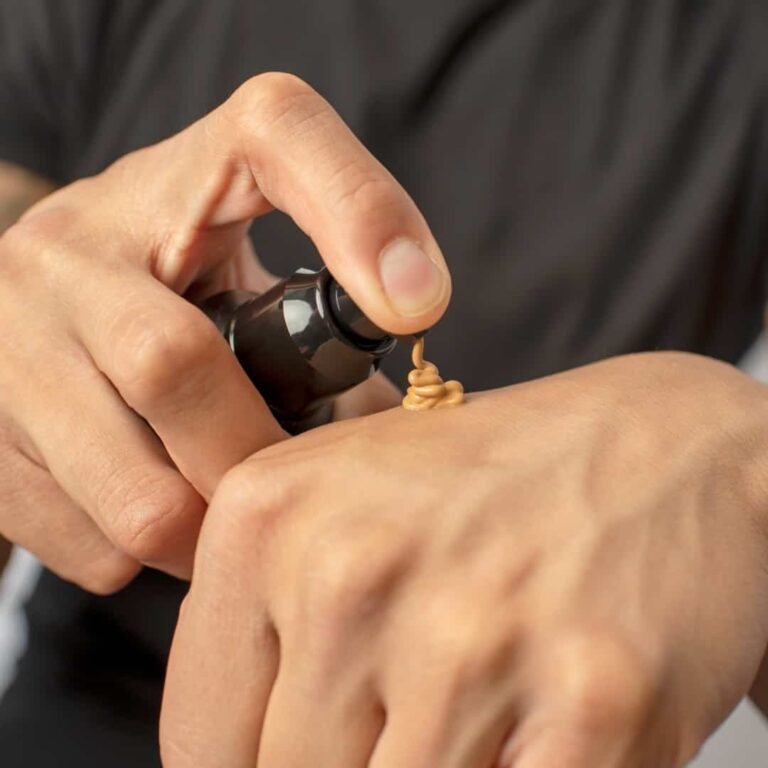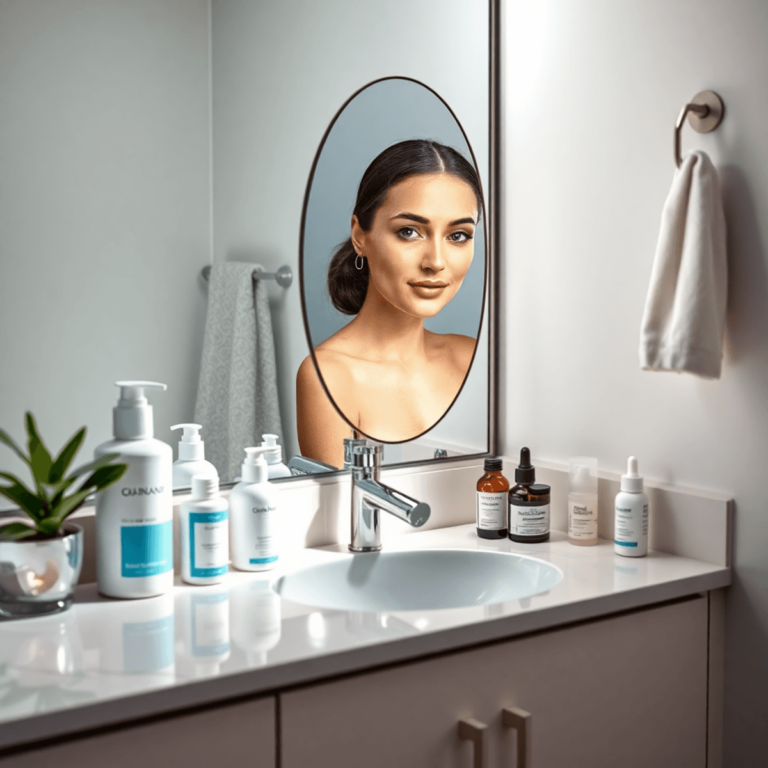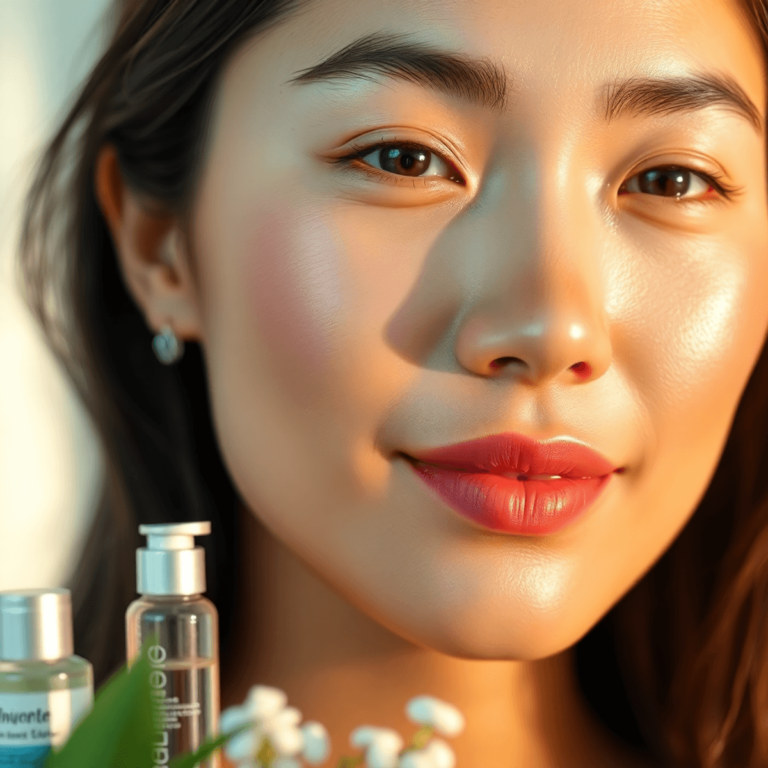How do i get perfect skin

Introduction
Many people want perfect skin, which drives them to try different skincare routines and treatments. Having beautiful, clear skin boosts confidence and creates a positive first impression in both personal and professional settings.
Some common skin issues that people experience are:
- Acne and breakouts
- Uneven skin tone
- Visible pores
- Dark spots and hyperpigmentation
- Fine lines and wrinkles
- Dryness or excess oil
To achieve flawless skin, you need to combine consistent skincare practices with healthy lifestyle choices. The journey to perfect skin begins with understanding your unique skin type and needs. This knowledge will help you create a customized routine that addresses your specific concerns.
The good news? You don’t have to spend a lot of money on expensive treatments or complicated procedures to get clear, smooth skin. Simple daily habits and natural remedies can make a big difference in how your skin looks. By using the right cleansing techniques and protecting your skin from the sun, you can achieve that desired natural glow.
In this guide, we will share effective strategies for achieving flawless skin. These strategies will help you develop a skincare routine that suits your individual needs and fits into your lifestyle.
Understanding Your Skin Type
Knowing your skin type is the foundation of an effective skincare routine. Your skin falls into one of these categories:
1. Normal Skin
- Balanced oil production
- Few to no imperfections
- Barely visible pores
- Radiant complexion
2. Oily Skin
- Enlarged pores
- Shiny, thick complexion
- Blackheads, pimples, or other blemishes
- Excess oil production throughout the day
3. Dry Skin
- Almost invisible pores
- Red patches
- Less elastic
- Rough, flaky patches
- Visible lines
4. Combination Skin
- Oily T-zone (forehead, nose, chin)
- Dry or normal cheeks
- Enlarged pores in some areas
- Seasonal changes in oiliness
To determine your skin type, wash your face with a gentle cleanser and wait one hour. Observe:
- Tight, flaky skin indicates dry skin
- Shine across your face suggests oily skin
- Shine in T-zone only points to combination skin
- No significant changes typically means normal skin
Your skin type guides product selection. Dry skin benefits from cream-based products rich in hydrating ingredients like hyaluronic acid. Oily skin requires lightweight, non-comedogenic formulas. Combination skin might need different products for different areas. Normal skin maintains its balance with gentle, basic skincare products.
Essential Skincare Practices for All Skin Types
Building a solid skincare routine requires understanding fundamental practices that benefit every skin type. These essential habits create the foundation for achieving clear, glowing, and flawless skin naturally.
1. Sun Protection
Sun protection stands as the cornerstone of any effective skincare routine. UV rays cause:
- Premature aging
- Dark spots
- Uneven skin tone
- Increased risk of skin cancer
- Breakdown of collagen
- Dehydration
Daily Sun Protection Guidelines:
- Apply broad-spectrum SPF 30 sunscreen every morning
- Reapply every 2-3 hours when outdoors
- Use extra protection between 10 AM and 4 PM
- Wear protective clothing, including wide-brimmed hats
- Seek shade during peak sun hours
Choosing the Right Sunscreen:
- Chemical sunscreens: Absorb UV rays, ideal for daily use
- Physical sunscreens: Create a protective barrier, perfect for sensitive skin
- Hybrid formulations: Combine both protection methods
Application Tips:
- Use a quarter-sized amount for face coverage
- Apply 15-20 minutes before sun exposure
- Don’t forget often-missed areas:
- Ears
- Neck
- Back of hands
- Lips (use SPF lip balm)
Additional Protection Measures:
- Install UV-protective films on car windows
- Use UV-protective clothing with UPF ratings
- Keep sunscreen in multiple locations (car, office, bag)
- Consider sun-protective supplements like vitamin D
Remember that sun protection works best as part of a comprehensive skincare routine that includes proper cleansing, moisturizing, and targeted treatments for specific skin concerns.
2. Gentle Cleansing and Exfoliation Techniques
A proper cleansing routine forms the foundation of healthy, glowing skin. Wash your face twice daily – once in the morning to remove overnight oil buildup and again before bed to clear away makeup, dirt, and environmental pollutants.
Choosing Your Cleanser
- Oily skin: Select gel-based or foaming cleansers
- Dry skin: Use cream or milk-based cleansers
- Sensitive skin: Pick fragrance-free, gentle formulations
- Combination skin: Try mild, pH-balanced cleansers
Exfoliation Benefits
Regular exfoliation removes dead skin cells, unclogs pores, and promotes cell turnover for a brighter complexion. Choose between:
- Physical exfoliants: Scrubs, brushes, or washcloths
- Chemical exfoliants: AHA (glycolic acid) or BHA (salicylic acid)
Recommended Frequency
- Normal/Combination skin: 2-3 times per week
- Oily skin: Up to 3 times per week
- Dry/Sensitive skin: Once per week
Apply gentle pressure during cleansing and exfoliation – harsh scrubbing can irritate your skin and trigger excess oil production. Listen to your skin’s needs and adjust frequency based on its response.
3. Moisturizing Strategies for Hydration Levels
Moisturizing creates a protective barrier that locks in hydration, giving you that coveted glowing, flawless complexion. Your skin’s hydration needs vary based on several factors:
Dry Skin
- Rich, cream-based moisturizers with hyaluronic acid
- Products containing ceramides and natural oils
- Apply twice daily on damp skin for maximum absorption
Oily Skin
- Lightweight, water-based gel moisturizers
- Non-comedogenic formulas to prevent pore clogging
- Look for ingredients like niacinamide and salicylic acid
Combination Skin
- Use different moisturizers for different areas
- Gel-cream hybrids work well for balanced hydration
- Target oily T-zone with lighter formulas
Seasonal Adjustments
- Switch to heavier creams during winter
- Opt for lighter lotions in summer
- Layer hydrating products in dry climates
Your moisturizer application technique matters: pat gently into skin rather than rubbing, and apply to slightly damp skin to seal in extra hydration. For an extra boost, try using a hydrating essence or facial mist before your moisturizer.
Healthy Lifestyle Choices for Radiant Skin
Your skin reflects what you put into your body. A balanced diet packed with skin-nourishing foods creates the foundation for a clear, radiant complexion.
Skin-Boosting Foods:
- Fatty Fish – Rich in omega-3s for skin elasticity
- Berries – Packed with antioxidants to fight skin damage
- Leafy Greens – High in vitamins A and C for collagen production
- Sweet Potatoes – Beta carotene helps protect against sun damage
- Nuts and Seeds – Vitamin E sources for skin repair
- Lean Proteins – Essential for skin cell regeneration
Hydration for Glowing Skin
Your skin needs water to maintain its plumpness and clarity. Aim for 8-10 glasses of water daily to:
- Flush out toxins
- Keep skin cells hydrated
- Maintain skin elasticity
- Reduce the appearance of fine lines
- Prevent dry, flaky patches
Pro Tip: Track your water intake using a marked water bottle or smartphone app. Add fresh lemon, cucumber, or mint to make hydration more enjoyable.
Consider herbal teas as part of your daily fluid intake – green tea contains powerful antioxidants that protect your skin from environmental damage. Remember to reduce alcohol and caffeine consumption, as these can dehydrate your skin and trigger breakouts.
Avoiding Common Skincare Mistakes and Managing Stress Levels Effectively
Your hands carry countless bacteria throughout the day, making face-touching a significant threat to achieving flawless skin. Each time you touch your face, you transfer these bacteria directly onto your skin, potentially leading to breakouts and infections.
Common Face-Touching Habits to Break:
- Resting your chin on your hands
- Picking at blemishes
- Rubbing eyes
- Touching face while applying products
The urge to pop pimples can be tempting, but this practice causes inflammation and potential scarring. Instead, use spot treatments containing salicylic acid or benzoyl peroxide to target breakouts effectively.
Stress triggers hormonal changes that increase oil production and inflammation, directly impacting your skin’s appearance. Research shows that high cortisol levels can lead to acne breakouts and delayed healing.
Effective Stress Management for Glowing Skin:
- Practice deep breathing exercises for 5-10 minutes daily
- Incorporate yoga into your routine
- Take regular walks in nature
- Try mindfulness meditation apps
- Get 7-8 hours of quality sleep
Creating a dedicated relaxation space at home can help maintain consistent stress-reduction practices. A quiet corner with comfortable cushions and calming scents provides an ideal environment for meditation and breathing exercises.
Seeking Professional Help When Needed: Dermatology Consultation and Common Treatments Available
While home skincare routines can address many concerns, certain skin conditions require professional intervention. You should consider scheduling a dermatology consultation if you experience:
- Persistent acne that doesn’t respond to over-the-counter treatments
- Unusual moles or skin changes
- Severe hyperpigmentation
- Chronic skin conditions like eczema or rosacea
- Deep scarring
- Sudden skin reactions or allergies
Professional dermatologists offer specialized treatments to achieve flawless skin:
Prescription Medications
- Topical retinoids for acne and aging
- Antibiotics for severe breakouts
- Specialized creams for hyperpigmentation
In-Office Treatments
- Chemical peels to remove dead skin cells
- Microdermabrasion for texture improvement
- Laser therapy for scarring and discoloration
- LED light treatments for acne
- Botox and fillers for fine lines
Your dermatologist will create a personalized treatment plan based on your skin type, concerns, and goals. Many treatments require multiple sessions for optimal results, and your doctor can guide you through the expected timeline and maintenance requirements.
Remember: Professional guidance can fast-track your journey to clear, glowing skin when at-home remedies aren’t providing the desired results.
FAQs (Frequently Asked Questions)
How can I achieve perfect skin?
Achieving perfect skin involves a combination of understanding your skin type, following a consistent skincare routine, protecting your skin from the sun, and making healthy lifestyle choices. It’s essential to identify your specific skin concerns and tailor your skincare practices accordingly.
What are the essential skincare practices for all skin types?
Essential skincare practices include sun protection, gentle cleansing and exfoliation, moisturizing based on hydration needs, and maintaining a healthy lifestyle. These components work together to promote clear and smooth skin regardless of your specific skin type.
Why is sun protection important for my skin?
Sun protection is crucial in preventing damage to the skin caused by UV rays, which can lead to premature aging and skin cancer. Using a broad-spectrum sunscreen with at least SPF 30 daily is recommended to safeguard your skin from harmful effects.
How do I identify my skin type?
To identify your skin type, observe how your skin behaves throughout the day. Oily skin may appear shiny or greasy, while dry skin may feel tight or flaky. Combination skin exhibits characteristics of both oily and dry areas. Understanding your skin type helps you choose suitable products for effective care.
What lifestyle choices can contribute to radiant skin?
Healthy lifestyle choices that promote radiant skin include maintaining a balanced diet rich in fruits, vegetables, and lean proteins, staying hydrated by drinking plenty of water, managing stress levels through techniques like exercise and meditation, and avoiding habits such as touching your face or popping pimples.
When should I consider consulting a dermatologist?
You should consider consulting a dermatologist if you experience persistent issues such as acne, hyperpigmentation, or other significant changes in your skin. A professional can provide personalized advice and recommend treatments like topical medications or chemical peels tailored to your needs.










